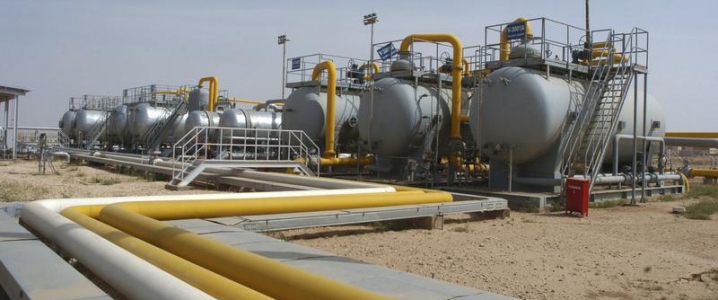In the past seven years Syrian cities have been reduced to rubble, thousands have lost their lives, but the main objective of the U.S. and its allies to remove Bashar al-Assad has failed. As of November 2018, government forces loyal to Assad have recaptured significant swaths of land from rebels. Two areas have escaped their grasp: Idlib, protected by Turkey, and Eastern Syria, protected by the U.S. Ankara needs to cooperate with Russia and Iran to obstruct the creation of an autonomous Kurdish region and prevent new flows of refugees towards its territory. Washington’s primary goal, however, is to maintain a foothold in Syria in order to contain Iran.
The U.S. is confronted by two challenges in achieving its goal: a working economy in Eastern Syria and a rebellious Turkey. Ankara strongly opposes the Kurdish YPG which is the backbone of the SDF forces that have established control over the area. Eastern Syria, however, contains the resource by which Washington can overcome both challenges: oil.
The two sides of Syria
Syria is usually divided into roughly two parts: Western Syria and Eastern Syria. The majority of the population before the conflict lived in the urban areas of Western Syria which includes the cities of Damascus, Hama, Homs, and Aleppo. These areas had the highest contribution to national economic output. Despite the destruction, it is safe to assume that these areas will become the epicenter of economic activity again.
Eastern Syria, on the contrary, is the less productive part of the country due to its relative underdevelopment. Before the war, when the last meaningful inquiries were made, the region had an illiteracy rate of 30 percent compared to the national average of 15 percent. Of the workforce in Eastern Syria, 40 percent worked in agriculture compared to a national average of 20 percent.
Despite its low economic output, the eastern region is actually the breadbasket of Syria and contains the majority of the nation’s energy resources. Before the war, the country produced 387,000 barrels of oil per day, of which 140,000 were exported. The challenge currently is not production, but transportation. Before the war, a 1,400 kilometers long pipeline transported the oil to a transport terminal on the Mediterranean Sea in Western Syria. This pipeline is currently out of order as the west is controlled by forces loyal to Assad.

Eastern Syria revived
Washington’s efforts to oppose and depose President Assad have failed. Attempts to unite rebel groups and provide them with training and weapons didn’t have the desired results. The SDF in Eastern Syria, of which the Kurdish YPG is the backbone, has been the exception. U.S Secretary of State Mike Pompeo declared that the Syrian Kurds “have been great partners" and added, "Washington would make sure that the Kurds have a seat at the table".
An autonomous Kurdish region bordering Turkey would be the worst-case scenario come true for Ankara. The Turks have declared on multiple occasions that the ‘Kurdish issue' is a red line. Unfortunately for Ankara, Washington doesn't seem willing to change its course concerning its support for the Kurds. The U.S. has tried to appease Turkey by putting bounties on several PKK leaders. Ankara, however, interpreted these steps as an effort to separate the YPG from the PKK. Related: The Oil Industry Is Facing A "Capex Conundrum"
Despite the intractable position of both the U.S. and Turkey, Washington could bring the parties together on basis of mutual interests and economic dependency. Eastern Syria contains 95 percent of the country’s oil resources. The Kurds have already struck a minor deal with the Syrian government under the mediation of Moscow to share a third of the 50,000 barrels per day produced at Rmailan oilfield. Energy, however, could also moderate Ankara’s position vis-à-vis the Kurdish issue by providing an incentive to cooperate.
Energy as glue
Turkey and Eastern Syria are complementary to each other in terms of energy production and consumption. The Kurdish controlled areas could potentially produce large quantities of oil, while Turkey already imports 75 percent of its energy from abroad. Ankara's opposition concerning Washington's involvement is not by definition aimed towards the Kurds, but the YPG's dominant presence.
Turkey has already established working relations with another autonomous Kurdish region in Iraq. Despite Ankara’s strong opposition towards the independence referendum of Iraqi Kurdistan in October 2017, the Kirkuk-Ceyhan pipeline has been restarted. If Washington is able to mitigate the YPG’s role and convince Turkey of the benefits in working with the remaining Syrian Kurds, both parties could benefit greatly from cooperation.
By Vanand Meliksetian for Oilprice.com
More Top Reads From Oilprice.com:
- China’s Oil Inventories Rise 416.7% In One Month
- Iran: U.S. Has Failed To Stop Oil Exports
- Oil Slips As Russia Mulls Production Cuts



















Withdraw your illegal forces, stop arming terrorists and mind your own business.